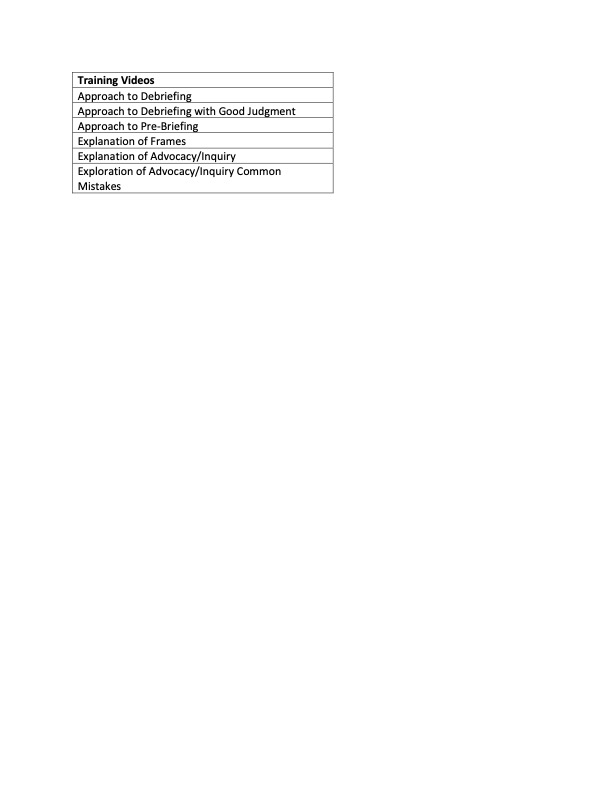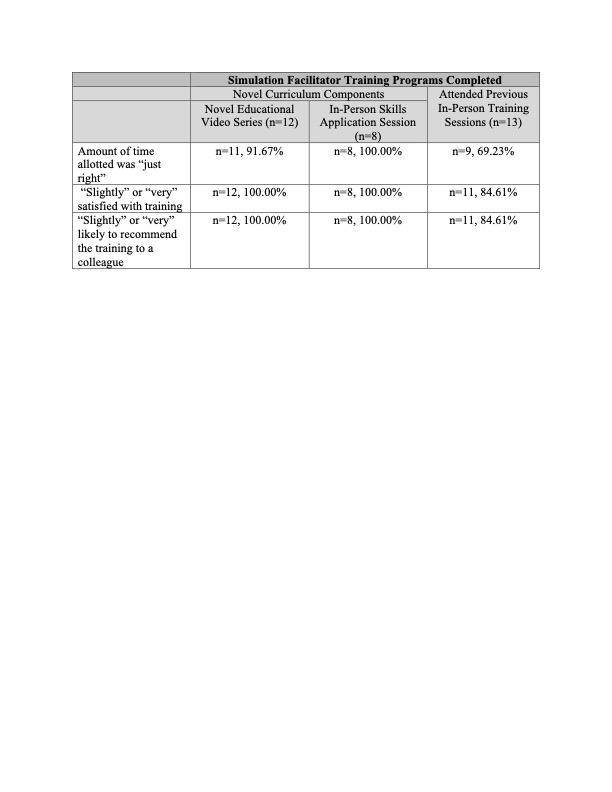Medical Education: Simulation & Technology
Medical Education 9: Simulation & Technology 2
522 - Flipping the (Debriefing) Script: A Novel Curriculum for Simulation Debriefing Training
Publication Number: 522.327
.jpg)
Andrew Cohen, MD (he/him/his)
Resident
MassGeneral Hospital for Children
Boston, Massachusetts, United States
Presenting Author(s)
Background: Simulation-based education, a crucial part of medical education, requires effective debriefing for maximal efficacy. Yet, there is little evidence on how to teach faculty debriefing skills. Faculty debriefing training programs, advanced simulation degrees, and other methods exist but are underutilized given their high cost and requisite time commitment. This leads to difficulty recruiting trained simulation debriefers and leaves many faculty struggling to master debriefing skills. This essential need can be met by utilizing evidence-based debriefing methods, such as the Promoting Excellence and Reflective Learning in Simulation (PEARLS) model.
Objective: To develop a novel, efficient, and interactive faculty simulation debriefing curriculum.
Design/Methods:
We developed a novel simulation debriefing curriculum utilizing a flipped classroom approach. Faculty received six short, internally-created videos which incorporated core concepts from the PEARLS and Debriefing with Good Judgment models (Table 1). Faculty then attended a ninety-minute in-person skills application session, where they observed both pre-recorded and live simulations and practiced debriefing with feedback.
Data were collected post-intervention via a participant survey to describe faculty experience with debriefing training and assess confidence in skills taught.
Results: Forty faculty attended the training and received the survey via e-mail. Twenty (50.0%) completed the survey. Nine (45.0%) have been in practice for two to five years and ten (50.0%) have conducted simulation debriefing for two to five years. All twenty respondents expressed confidence in leading a pre-briefing and sixteen (80.0%) in leading a debriefing. Eleven (55.0%) felt ready to lead a pre-briefing and ten (50.0%) felt ready to lead a debriefing. Most identified the amount of time for the overall training as “just right,” were satisfied with both the videos and the skills session, and were likely to recommend both to a colleague (Table 2). Those who watched the educational video series did so completely and most were likely to review again (n=9, 75.0%).
Conclusion(s): Our novel curriculum represents an efficient and interactive method to train faculty in simulation debriefing. Importantly, participants were overwhelmingly satisfied with this model and would recommend it to other colleagues, suggesting that this represents an acceptable and feasible model for engaging faculty in evidence-based simulation debriefing training.

